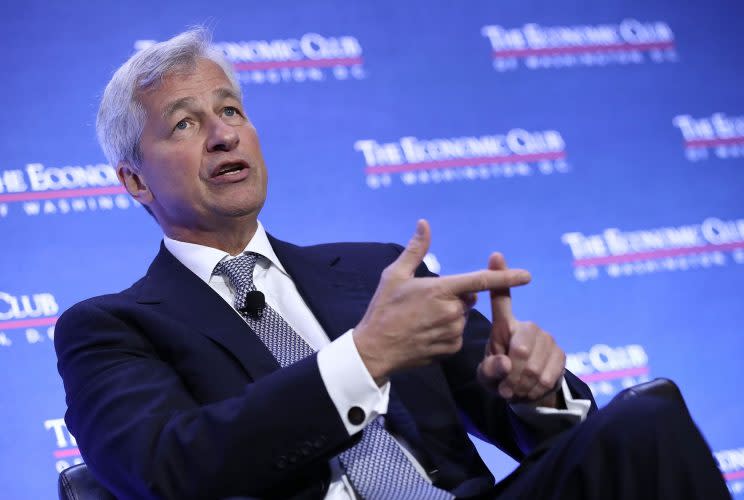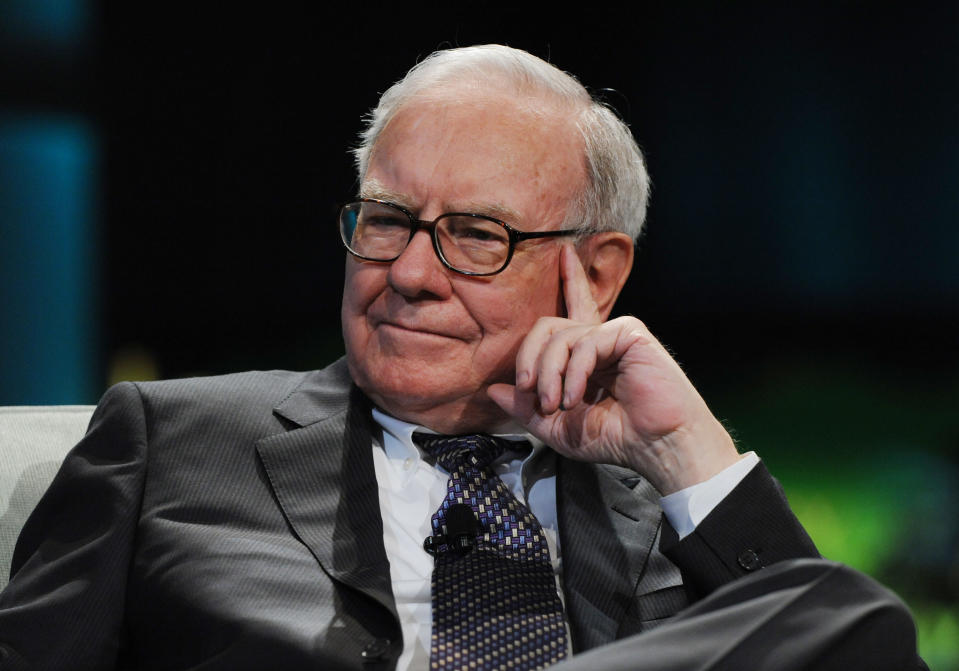Jeff Bezos, Jamie Dimon, Warren Buffett agree on the No. 1 priority for business
What’s the endgame for a business? Is it to enrich investors? Is it to crush competitors? Is it to maximize profits?
For insiders, high stock prices, crippled competition, and fat profits sound great. But for outsiders, including customers and clients of those businesses, none of those ends are very comforting. Indeed, unsavory incentives encourage corporate misbehavior. Consider the recent scandal plaguing Wells Fargo (WFC), where employees were pressured to sell customers products that they didn’t want or need.
A business ceases to be without customers. So it’s critical for businesses to telegraph to their customers that they’re not in the business of screwing people.
In recent weeks, we’ve heard Warren Buffett, Jamie Dimon and Jeff Bezos talk about managing their businesses. Respectively, they’re the CEOs of Berkshire Hathaway (BRK-A, BRK-B), JPMorgan Chase (JPM) and Amazon.com (AMZN). These are three very different companies, but all are regarded highly and all are worth hundreds of billions of dollars.
What’s their secret?
Customer first
In their recent talks, all three of these giants of business emphasized one thing: customer first.
At the Economic Club of Washington DC in September, JPMorgan CEO Jamie Dimon discussed what eventually led to his ouster from Citigroup in 1998. At the time, top brass were creating an organizational structure that Dimon was convinced would create chaos at the banking conglomerate. But they followed through because, according to Dimon, “It worked for them.”
“It doesn’t matter if it works for you,” Dimon said of business executives. “When you hear a CEO say, ‘It works for me,’ you should question their intelligence. Because it’s not the way you should look at business. It’s what works for the client, ultimately.”
JPMorgan Chase is the largest bank in America.

Amazon.com CEO Jeff Bezos echoed this priority during the Vanity Fair New Establishment Summit last week.
“The core of the company is customer-obsession as opposed to competitor-obsession,” Bezos said. “Customers are always dissatisfied and they always want more. So they pull you along. If you’re trying to serve them, they pull you along.”
In other words, customers force you to evolve. And by definition, they’re also the best source of feedback regarding the customer.
“If you want to be pioneering, if you want to be inventive and if you want a culture that’s experimental, then you want to be customer-obsessed,” he said.
Amazon.com is the 800lb gorilla in online retail, which has supplanted the brick-and-mortar retail business model.

Berkshire Hathaway CEO Warren Buffett refined this not-so-secret secret to success at Goldman Sachs’ 10,000 Small Businesses event in July.
“Tomorrow morning when you look in the mirror after you’ve gotten up, just write — or just put it in lipstick or whatever you want — ‘delight my customer’ not ‘satisfy my customer.’ ‘Delight my customer,’” he said.
Buffett explained that an investment in delighting a customer can have a lucrative multiplier effect.
“Any business that has delighted customers has a salesforce out there that you don’t have to pay. You don’t see them, but they are talking to people all the time,” he added.
This customer-first mindset may seem obvious. But it becomes challenging to execute in a business environment riddled with incentives slanted toward short-term goals, which can often come at the cost of the customer.
Perhaps now is a good time for managers and shareholders to consider the success of folks like Bezos, Dimon and Buffett, who have built their fortunes and the fortunes of their shareholders by putting the customer first.
–
Sam Ro is managing editor at Yahoo Finance.
Read more:
A gut-wrenching lesson to novice investors
How a bad story can cripple the economy
Warren Buffett: The foundation of every market bubble is a ‘sound premise’